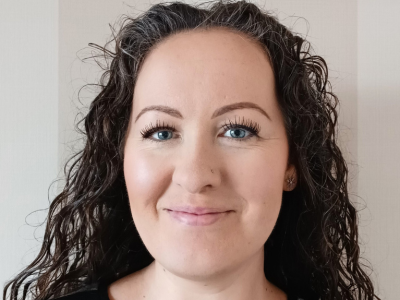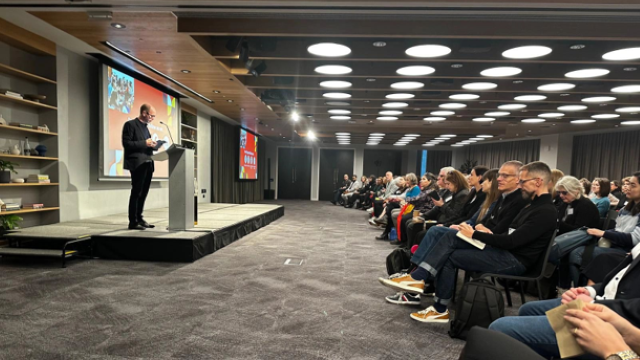-
QUALIFICATIONS
- For Linguists Worldwide
- For UK Public Services
- Preparation
- Policies & Regulation
-
MEMBERSHIP
- Join CIOL
- Membership grades
- NEW for Language Lovers
- Chartered Linguist
- Already a member?
- Professional conduct
- Business & Corporate Partners
-
ASSESSMENTS
- For Second Language Speakers
- English as a Second Language
-
EVENTS & TRAINING
- CPD, Webinars & Training
- CIOL Conference Season 2025
- Events & Networks
- CIOL Mentoring
-
NEWS & VOICES
- News & Voices
- CIOL eNews
- CIOL Awards
- The Linguist
- Jobs & Ads
-
RESOURCES
- For Translators & Interpreters
- For Universities & Students
- Standards & Norms
- CIOL & AI
- All Party Parliamentary Group
- In the UK
- UK Public Services
- Find-a-Linguist
Three things I wish I’d known when starting out as a freelance translator
By Laura Jones

In April, I was invited to speak to Translation Studies students at Cardiff University about the realities of working as a freelance translator. During the relaxed and informal Q&A session, we discussed everything from AI, MT and CAT tools to finding clients and knowing what to charge for our services. I tried to be as open and honest as possible without dwelling on the negatives of our profession and to finish, I was asked what three things I wish I’d known when I started out. Great question: there’s only so much a degree can prepare you for, after all.
1. I wish I’d known how to set my rates
The translation profession is notoriously secretive about rates, so it’s no surprise that new translators feel clueless about pricing their services and often undercharge. There are numerous factors to consider when setting your rates: cost of living and outgoings, client type, project type, language pair, area of specialisation, etc., so what seems like a perfectly acceptable rate for one translator may be too low for another. Indeed, providing clients with your rates can sometimes feel like a stab in the dark.
But there is help available: Proz.com lists the average translation rates by language pair; however, the data is an aggregate of the rates entered into user profiles and doesn’t necessarily reflect the actual rates of real projects. As part of the extensive Freelance Translator survey 2023 research by Inbox Translation, in collaboration with the Institute of Translation and Interpreting, there is a detailed comparison of rates charged by members and non-members for general and specialised translations, as well as for agencies and direct clients. Both resources are a useful starting point to gain a better understanding of current average rates.
Of course, your rates must also allow you to make a decent, sustainable living. Corinne McKay has some handy tips on her Training for Translators website, including the blog post Using objective data to set your translation rates, which explains how to calculate your billable hours and ideal hourly or word rate. Similarly, Susie Jackson offers mentorships, courses and other fantastic free resources to help freelance language professionals charge with confidence.
2. I wish I’d started building my network sooner
It’s common to feel lost and alone when you start freelancing, especially if you don’t know any other translators or interpreters. One of my top tips is to connect with other freelancers on LinkedIn and social media to start building your network. The translation and interpreting community is incredibly supportive—after all, we’re colleagues, not competitors—and connecting with more experienced translators, interpreters and project managers is one of the most effective ways to learn about the profession. Don’t be scared to reach out and ask questions: translators and interpreters are a friendly bunch and famously generous with their time and advice. And if you’re not already a member, consider joining the #TeamTranslator Slack group, where you’ll be among over 1300 colleagues.
3. I wish I’d joined a professional association earlier
One of the best decisions I made was to join the Chartered Institute of Linguists and Institute of Translation and Interpreting, the two main associations for translators, interpreters and language professionals in the UK. Not only does a professional membership help you stand out to clients by showing that you meet stringent criteria and adhere to a code of conduct, but you also have access to numerous benefits including training, discounts, support and networking events, which are beneficial whatever stage of your career. If you’re based outside the UK, you can find your local professional association on the International Federation of Translators’ directory of members.
Although I’ve grown a lot during the first five years as a freelance translator, I’m still developing my skills and business, and I learn something new every day thanks to my network of colleagues. Sharing is caring and, in my view, there’s no more caring community than the translation and interpreting profession. So, if you’re just starting out as a freelance translator or interpreter, be brave and get involved – you won’t regret it!
Laura will be presenting a webinar for CIOL on top tips: From one Translator to Another: Top Tips for New Freelancers - 18 July 2024
Register here: https://register.gotowebinar.com/register/4334734871812877653
Laura Jones is a freelance beauty and lifestyle translator working from French, Spanish and Welsh into English, and English into Welsh. She’s a member of CIOL and ITI and coordinator of the ITI Beauty, Fashion and Luxury Network. You can connect with Laura on LinkedIn.
Views expressed on CIOL Voices are those of the writer and may not represent those of the wider membership or CIOL.
Filter by category
More
The Chartered Institute of Linguists (CIOL), Incorporated by Royal Charter, Registered in England and Wales Number RC 000808 and the IoL Educational Trust (IoLET), trading as CIOL Qualifications, Company limited by Guarantee, Registered in England and Wales Number 04297497 and Registered Charity Number 1090263. CIOL is a not-for-profit organisation.








